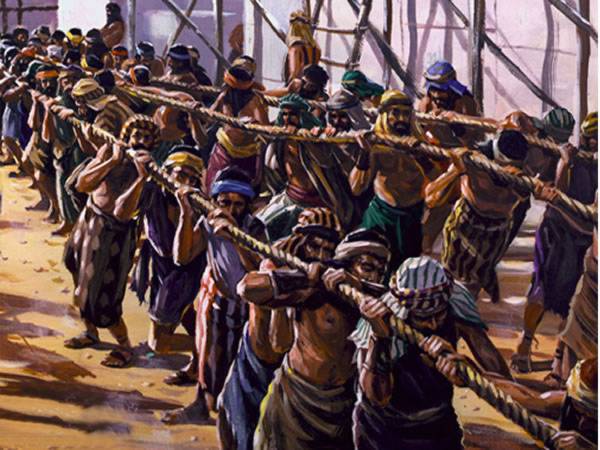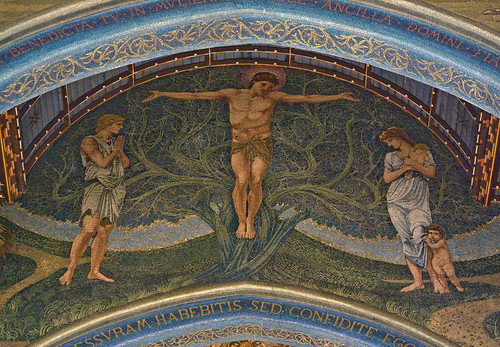
Ever good thing we could think or desire is to be found in this same Jesus Christ alone, For,
He was sold, to buy us back;
captive, to deliver us;
condemned, to absolve us;
He was made a curse for our blessing,
sin offering for our righteousness,
marred that we might be made fair;
He died for our life;
so that by Him
fury is made gentle,
wrath appeased,
darkness turned to light,
fear reassured,
disposal despised,
debt cancelled,
labour lightened,
sadness made merry,
misfortune made fortunate,
difficulty easy,
disorder ordered,
division united,
ignominy ennobled,
rebellion subjected,
intimidation intimidated,
ambush uncovered,
assaults assailed,
force forced back,
combat combated,
war warred against,
vengeance avenged,
torment tormented,
damnation damned,
the abyss sunk into the abyss,
hell transfixed,
death dead,
mortality made immortal.
In short, mercy has swallowed up all misery, and goodness all misfortune. For all these things which were to be the weapons of the devil in his battle against us, and the sting of death to pierce us, are turned for us into exercises which we can turn to our profit. If we are able to boast with the apostle, saying, ‘O hell, where is thy victory? O death, where is thy sting?’ it is because by the Spirit of Christ, we live no longer, but Christ lives in us.
John Calvin, as quoted by Justin & Lindsey Holcomb, Rid of My Disgrace: Hope and Healing for Victims of Sexual Assault, Crossway Publishers, 2011, pg. 101















































